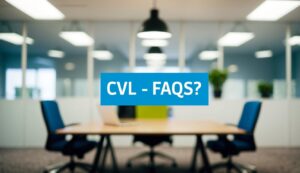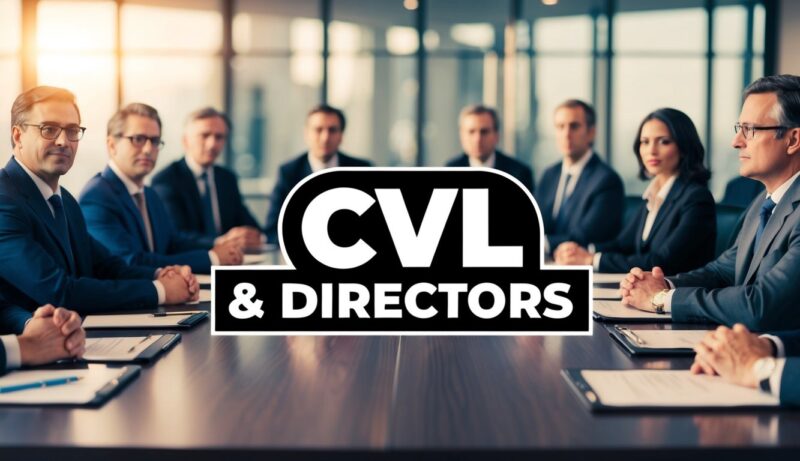What Happens to Directors After a CVL? Legal Consequences and Obligations Explained
Legal And Financial Implications For Directors Post-CVL
A Creditors’ Voluntary Liquidation (CVL) has significant consequences for company directors. You’ll face potential restrictions on future directorships and may be held liable for certain company debts. We are able to discuss and advise on 0800 1804 933.
Consequences for Directors After a Creditors’ Voluntary Liquidation (CVL)
| Question | Practical Answer |
| Will I Be Personally Liable for Debts? | Directors are generally not personally liable for company debts unless they provided personal guarantees or engaged in wrongful trading or misconduct. |
| Will My Actions Be Investigated? | Yes, the insolvency practitioner will conduct a mandatory investigation into directors’ conduct to ensure they acted responsibly prior to the CVL. |
| What Happens if Misconduct is Found? | Directors found guilty of misconduct could face personal liability, disqualification from directorships, or, in severe cases, criminal prosecution. |
| Can I Be Disqualified as a Director? | Disqualification can occur if directors are found to have acted negligently or recklessly. This can range from 2 to 15 years, depending on severity. |
| Will I Lose My Personal Assets? | Personal assets are usually protected unless directors provided personal guarantees or engaged in fraudulent activities, which may lead to personal liability. |
| Can I Start a New Business? | Yes, but using the same or a similar name as the liquidated company is restricted under the ‘phoenix company’ rules unless legal requirements are met. |
| How Does a CVL Impact My Credit Rating? | A CVL does not directly affect a director’s personal credit rating. However, personal guarantees and creditor actions could impact creditworthiness. |
| What Support is Available After a CVL? | Directors can seek legal advice and financial planning support to rebuild and start anew, ensuring compliance with post-CVL restrictions. |
| Will I Face Public Scrutiny? | The CVL process is recorded at Companies House, and details are available publicly. However, acting responsibly can preserve your professional reputation. |
| What is the Role of the Insolvency Practitioner? | The insolvency practitioner ensures the process is fair and legal, investigates director conduct, and helps directors understand their responsibilities. |
Impact On Directorship And Business Operations
After a CVL, your role as a director ceases immediately. You can no longer access company assets or make decisions on its behalf. Your name will be listed in public records, which may affect your ability to secure future directorships or loans.
You’re required to cooperate fully with the liquidator, providing all necessary information about the company’s affairs. Failure to do so can result in legal penalties.
If you’ve given personal guarantees for company debts, creditors may pursue you individually. This could impact your personal finances and credit rating.
Understanding Director Disqualification Risks
Director disqualification is a serious potential outcome of a CVL. If your conduct as a director is found to be unfit, you may be disqualified for 2-15 years.
Unfit conduct includes:
- Trading whilst insolvent
- Failing to keep proper accounting records
- Not paying taxes
- Using company money for personal benefit
During disqualification, you can’t act as a director, form or manage a company without court permission. Breaching a disqualification order is a criminal offence.
To mitigate risks, always act in the company’s best interests and seek professional advice early when facing financial difficulties.
Free Consultation – advice@andersonbrookes.co.uk or call on 0800 1804 933 our freephone number (including from mobiles).
Can Directors Start A New Business After A CVL?
Directors can start a new business after a Creditors’ Voluntary Liquidation (CVL), but must adhere to certain rules and restrictions. These limitations aim to protect creditors and prevent abuse of the liquidation process.
Rules On Reusing Company Names Or Brands
You face strict regulations when it comes to reusing your former company’s name or brand after a CVL. Section 216 of the Insolvency Act 1986 prohibits you from using the same or a similar name for 5 years following liquidation. This applies to any business you form, manage, or promote.
There are exceptions:
- Purchasing the business assets through the liquidator
- Gaining court approval
- Giving notice to creditors and advertising in the Gazette
Violating these rules can lead to personal liability for company debts and potential criminal charges.
Restrictions On Starting Similar Ventures
While you can start a new business in the same industry, you must be cautious about similarities to your previous venture. The Insolvency Service may investigate if your new company appears too similar to the liquidated one.
Key considerations:
- Avoid using similar trading names or branding
- Ensure the new business model differs significantly
- Be prepared to explain how the new venture addresses past failures
You may face scrutiny if you attempt to purchase assets from the liquidated company at below market value. Transparency and seeking professional advice are crucial when starting anew after a CVL.

Personal Financial Impacts Of A CVL
A Creditors’ Voluntary Liquidation can significantly affect directors’ personal finances. You may face obligations stemming from personal guarantees and potential legal scrutiny of your actions as a director.
Handling Personal Guarantees And Debt
Personal guarantees often become payable when a company enters CVL. These are separate from company debts and remain your responsibility. You might need to repay loans or credit lines you guaranteed personally.
Banks or landlords commonly require personal guarantees. If you can’t pay, creditors may take legal action against you. This could lead to County Court Judgments (CCJs) or even personal bankruptcy.
It’s crucial to review all company agreements to identify personal guarantees. Consider negotiating with creditors for reduced settlements or payment plans. Seeking professional advice can help you navigate these challenges and explore options like Individual Voluntary Arrangements (IVAs).
Dealing With Legal Investigations Or Claims
Directors may face legal scrutiny following a CVL. The liquidator must investigate the company’s affairs and report on directors’ conduct to the Insolvency Service.
If evidence of wrongful trading, fraudulent trading, or breach of fiduciary duties is found, you could face disqualification as a director for 2-15 years. In severe cases, personal liability for company debts or criminal charges may apply.
To protect yourself:
• Maintain proper records and documentation
• Seek professional advice early when facing financial difficulties
• Act in the best interests of creditors when insolvency is apparent
Cooperate fully with the liquidator’s investigations.

Reputation Management After A CVL
A Creditors’ Voluntary Liquidation (CVL) can impact a director’s reputation, but there are ways to manage and rebuild it. Addressing concerns and rebuilding trust are crucial steps in moving forward professionally.
Addressing Creditor And Stakeholder Concerns
After a CVL, you’ll need to communicate openly with creditors and stakeholders. Provide clear explanations for the company’s financial difficulties and the decision to liquidate. Be prepared to answer questions about the company’s financial history and your role in its management.
Consider drafting a formal statement outlining the circumstances that led to the CVL. This can help control the narrative and demonstrate your commitment to transparency.
Offer to meet with key creditors or stakeholders individually. These meetings can help you address specific concerns and show your willingness to take responsibility.
Keep detailed records of all communications and actions taken during the CVL process. This documentation may prove valuable if questions arise later about your conduct as a director.
Rebuilding Trust In Business Circles
To rebuild trust, focus on demonstrating your integrity and business acumen. Consider taking business management or financial courses to enhance your skills and show commitment to improvement.
Network actively within your industry, but be prepared to discuss the CVL honestly if it comes up. Emphasise the lessons learned and how you’ve grown professionally from the experience.
Seek opportunities to contribute to your industry through speaking engagements, writing articles, or mentoring. This can help re-establish your expertise and credibility.
Consider partnering with respected professionals or businesses on new ventures. Their endorsement can help rebuild your reputation by association.
Be patient, as rebuilding trust takes time. Consistently demonstrate ethical business practices and financial responsibility in all your future endeavours. At Anderson Brookes – we are here to guide you and ensure compliance:

Common Challenges Faced By Directors Post-CVL
Directors often encounter significant hurdles after a Creditors’ Voluntary Liquidation (CVL). These challenges can impact both their professional and personal lives, requiring careful navigation and resilience. You may also be interested in CVL Costs.
Accessing Funding For New Ventures
Post-CVL, directors may struggle to secure funding for future business endeavours. Your credit rating is likely to suffer, making it difficult to obtain loans or credit lines. Banks and investors may view your track record with caution, requiring additional assurances or higher interest rates.
To overcome this:
- Rebuild your credit score gradually
- Consider alternative funding sources like angel investors or crowdfunding
- Prepare a robust business plan to demonstrate lessons learned
- Be transparent about your past experiences and how you’ve grown from them
Networking within your industry can also open doors to potential partners or mentors who understand the challenges of business recovery.
Managing Stress And Emotional Impacts
The aftermath of a CVL can take a significant toll on your mental health. You may experience feelings of failure, anxiety about the future, or loss of confidence. These emotional challenges can affect your decision-making and personal relationships.
To cope effectively:
- Seek professional counselling or join support groups for business owners
- Maintain a healthy work-life balance
- Set realistic goals for your recovery and celebrate small wins
- Stay connected with supportive friends and family
Remember, many successful entrepreneurs have faced setbacks. Use this experience as a learning opportunity to grow both personally and professionally. Focus on developing resilience and adapting your skills for future ventures.

How Anderson Brookes Assists Directors After A CVL
Anderson Brookes offers tailored support to directors before, during and after a Voluntary Liquidation. We are licensed insolvency practitioners and have worked with thousands of businesses and company directors from across England and Wales. We understand the financial impact of a CVL on directors and offer:
- One-on-one consultations to assess your personal financial situation
- Debt management strategies tailored to your circumstances
- Guidance on dealing with personal guarantees
- Advice on protecting personal assets and risks
Our experts can help you negotiate with creditors and explore options for bankruptcy if necessary. We also provide resources on budgeting and financial planning to help you regain financial stability.

Frequently Asked Questions
Directors often have concerns about their personal and professional futures following a Creditors’ Voluntary Liquidation (CVL). These questions address key issues surrounding liability, career prospects, and legal implications.
Can a director be held personally liable for the debts of a liquidated company?
Directors can be held personally liable for company debts in certain circumstances. This may occur if they have provided personal guarantees or engaged in wrongful trading. The liquidator will investigate the directors’ conduct leading up to the liquidation.
Is it possible for a director to resign during the liquidation process?
Directors can resign during the liquidation process, but this does not absolve them of their responsibilities. You may still be required to assist the liquidator and could face consequences for actions taken prior to resignation.
What are the legal consequences for directors following a company voluntary liquidation?
Legal consequences vary based on the circumstances of the liquidation. If no misconduct is found, directors may face few repercussions. However, serious breaches of duty could lead to disqualification or personal liability.
Are directors able to obtain a mortgage after their company has undergone liquidation?
Obtaining a mortgage after a company liquidation can be challenging. Lenders may view you as higher risk, potentially affecting your credit score. However, it’s not impossible, especially if you can demonstrate that the liquidation was not due to personal financial mismanagement.
Can a director start a new business after their previous company has been liquidated?
Directors can start a new business after liquidation, provided they haven’t been disqualified. However, restrictions may apply if the new company has a similar name to the liquidated one. It’s crucial to seek legal advice before proceeding.
What are the implications for personal assets when a limited company faces insolvency?
In most cases, personal assets are protected when a limited company becomes insolvent. The principle of limited liability generally safeguards directors’ personal wealth. However, this protection may not apply if you’ve given personal guarantees or been found guilty of wrongful trading.

